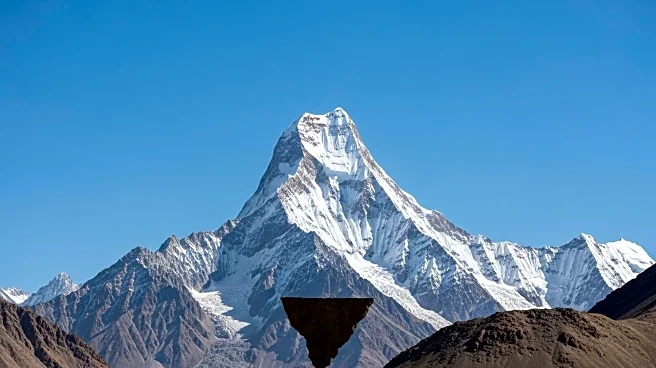What's Happening?
The region of Ladakh in India has been experiencing significant unrest following the death of four individuals during protests demanding greater political autonomy. The demonstrations, which took place in Leh, were fueled by dissatisfaction with New Delhi's direct rule over the territory. Protesters expressed concerns over losing traditional livelihoods and cultural identity, as well as land rights. The Apex Body Leh, led by Chering Dorjay, has been at the forefront of these protests, advocating for constitutional autonomy under India's 'Sixth Schedule'. The protests also highlighted fears regarding large-scale solar projects and industrial plans that threaten local grazing grounds.
Why It's Important?
The unrest in Ladakh underscores the broader issues of governance and autonomy in regions with distinct cultural and geographical identities. The protests reflect a growing demand for self-rule and protection of local rights, which could influence India's domestic policy and its approach to regional governance. The situation in Ladakh is particularly sensitive due to its strategic location bordering China and Pakistan, making it a focal point for geopolitical tensions. The outcome of these protests could set a precedent for other regions in India seeking similar autonomy, potentially impacting national unity and regional stability.
What's Next?
The protests are likely to continue as Ladakh's residents push for constitutional protections and greater autonomy. Negotiations with New Delhi may yield further concessions, but the path to achieving full autonomy remains uncertain. The Indian government may need to address the protesters' demands to prevent further escalation and ensure stability in the region. The situation could also attract international attention, given Ladakh's strategic importance and the involvement of neighboring countries.
Beyond the Headlines
The protests in Ladakh highlight the complex interplay between national governance and regional identities. The demand for autonomy raises questions about the balance between central authority and local self-determination. The situation also brings to light the environmental and cultural implications of large-scale development projects in sensitive regions. As Ladakh navigates these challenges, the broader discourse on regional autonomy and sustainable development in India may evolve.











